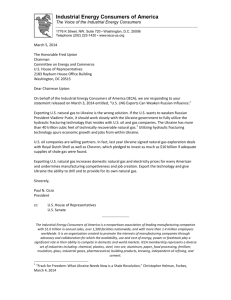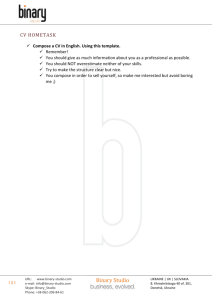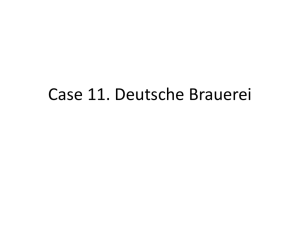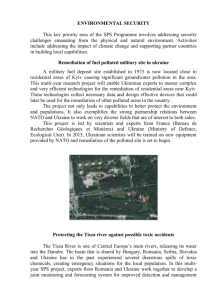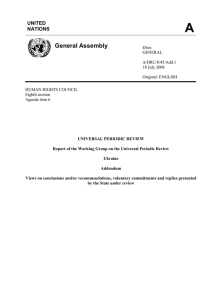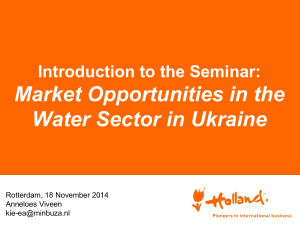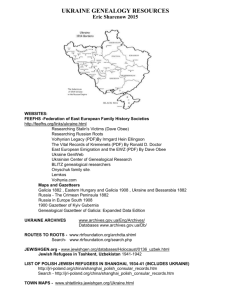Prof. Dr. Igor Mantsurov, Corresponding member of the National
advertisement
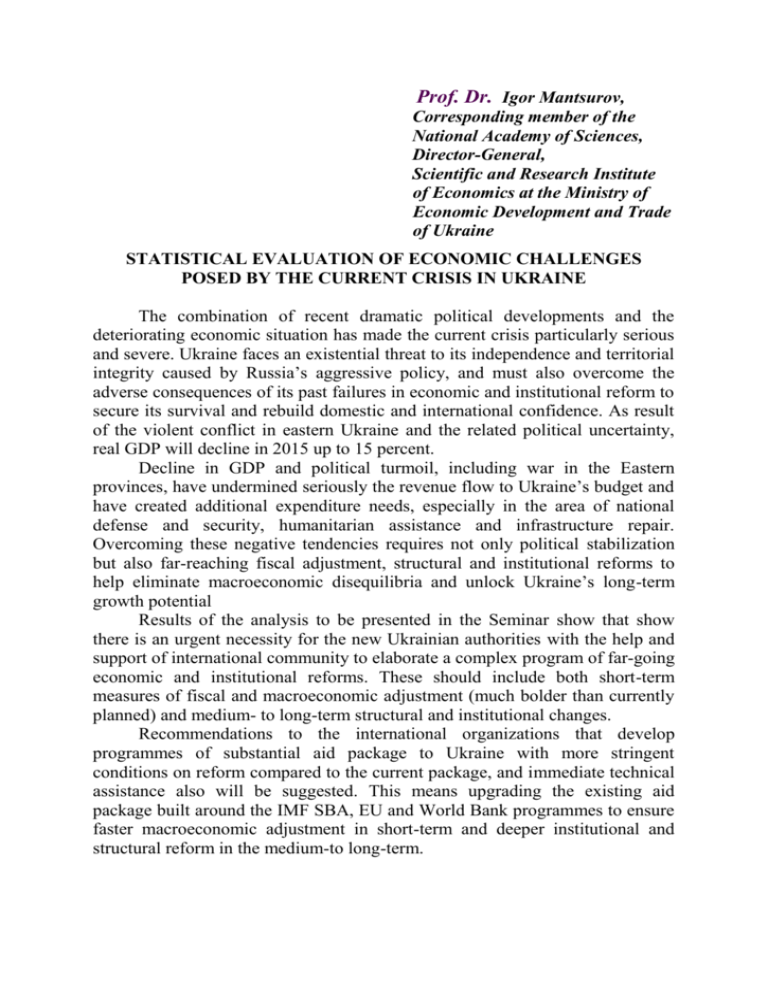
Prof. Dr. Igor Mantsurov, Corresponding member of the National Academy of Sciences, Director-General, Scientific and Research Institute of Economics at the Ministry of Economic Development and Trade of Ukraine STATISTICAL EVALUATION OF ECONOMIC CHALLENGES POSED BY THE CURRENT CRISIS IN UKRAINE The combination of recent dramatic political developments and the deteriorating economic situation has made the current crisis particularly serious and severe. Ukraine faces an existential threat to its independence and territorial integrity caused by Russia’s aggressive policy, and must also overcome the adverse consequences of its past failures in economic and institutional reform to secure its survival and rebuild domestic and international confidence. As result of the violent conflict in eastern Ukraine and the related political uncertainty, real GDP will decline in 2015 up to 15 percent. Decline in GDP and political turmoil, including war in the Eastern provinces, have undermined seriously the revenue flow to Ukraine’s budget and have created additional expenditure needs, especially in the area of national defense and security, humanitarian assistance and infrastructure repair. Overcoming these negative tendencies requires not only political stabilization but also far-reaching fiscal adjustment, structural and institutional reforms to help eliminate macroeconomic disequilibria and unlock Ukraine’s long-term growth potential Results of the analysis to be presented in the Seminar show that show there is an urgent necessity for the new Ukrainian authorities with the help and support of international community to elaborate a complex program of far-going economic and institutional reforms. These should include both short-term measures of fiscal and macroeconomic adjustment (much bolder than currently planned) and medium- to long-term structural and institutional changes. Recommendations to the international organizations that develop programmes of substantial aid package to Ukraine with more stringent conditions on reform compared to the current package, and immediate technical assistance also will be suggested. This means upgrading the existing aid package built around the IMF SBA, EU and World Bank programmes to ensure faster macroeconomic adjustment in short-term and deeper institutional and structural reform in the medium-to long-term.


